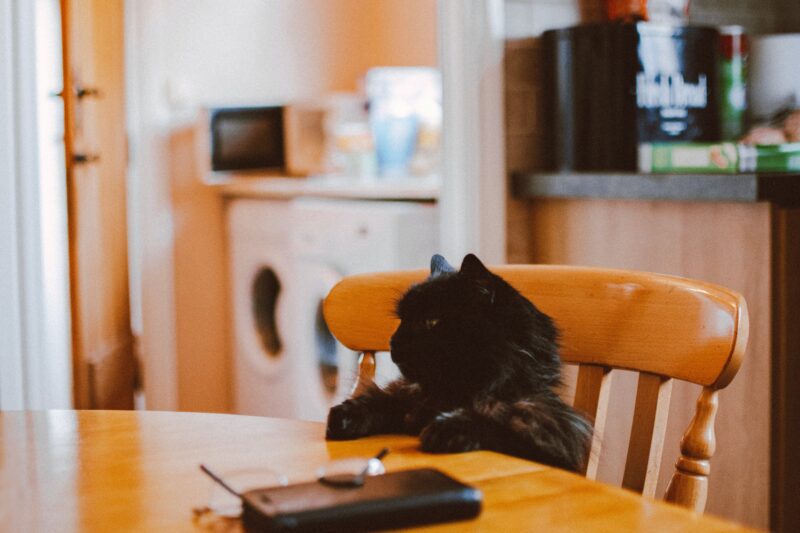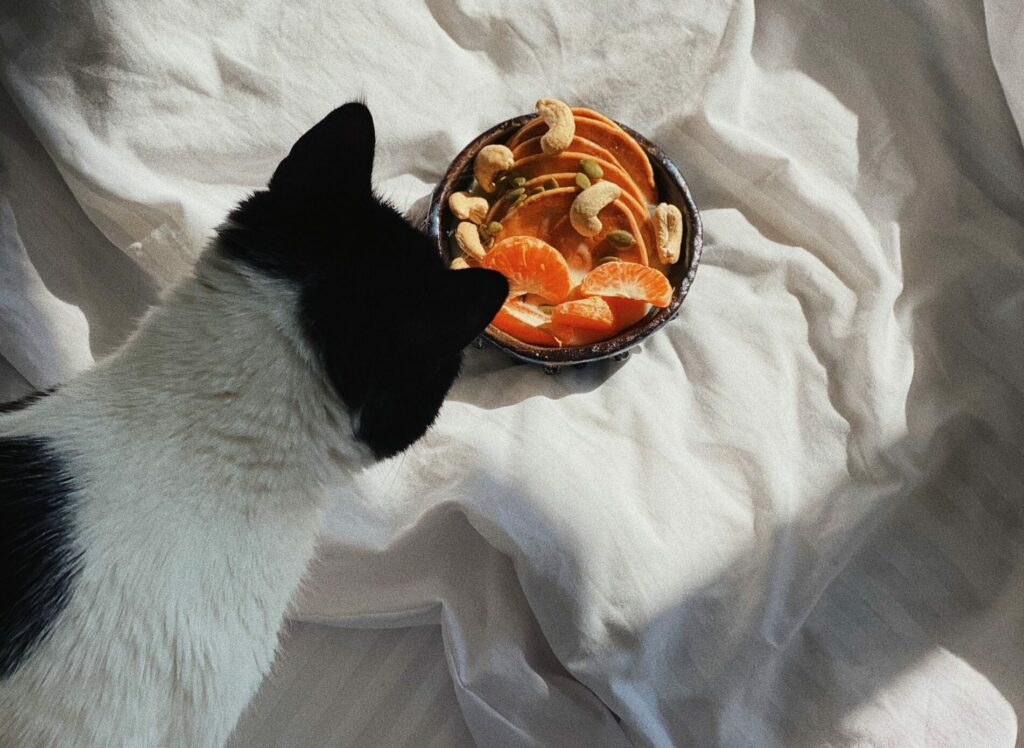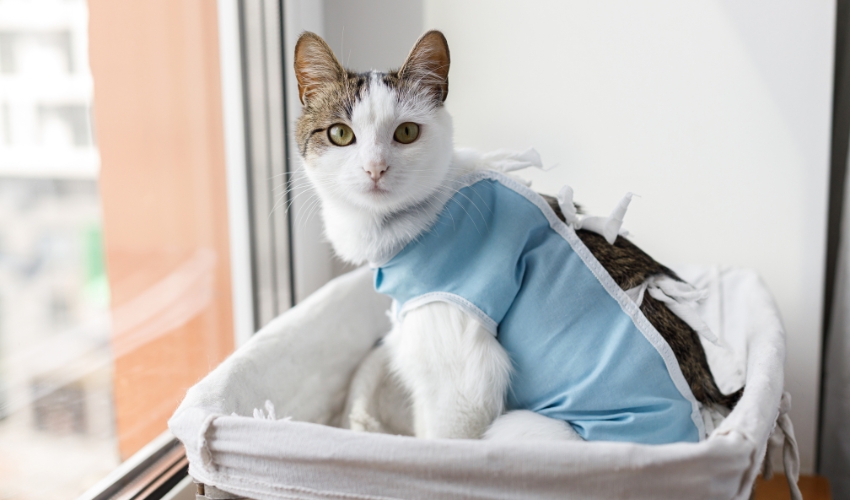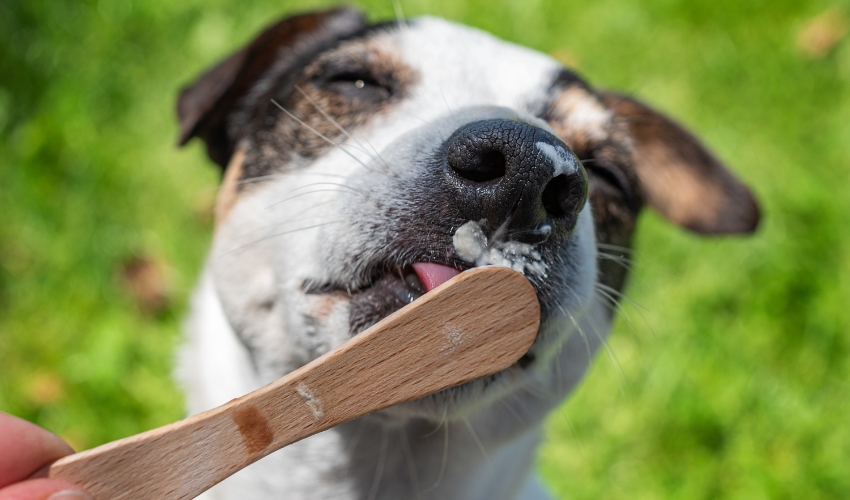There is a well-known saying that “You are what you eat,” and that applies not only to human nutrition but also to our furry friends. We take great care to ensure that our cats receive a diet rich in nutrients, as we are their devoted caregivers. But it’s not unusual to be curious about feeding our pet friends from our own plates. Although it is often known that some human meals can be harmful to cats’ health, there is an amazing variety of safe options that can also improve their diet by adding extra nutrients and flavors. This article explores the universe of foods from humans that cats can eat and still maintain good health. Cat owners can satisfy their pets’ discriminating palates and improve their general health by being aware of and accepting these safe substitutes. The world of cat-friendly human foods, which ranges from vitamin-rich goodies to protein-rich options, challenges us to think twice about what we feed our furry friends and supports the idea that we should make wise decisions outside of our own plates.
Acknowledging the fact that not every pet owner is capable of purchasing commercialized cat foods.
It is imperative to recognize that not all pet owners are able to afford to buy commercial cat food. Financial limitations can be a big problem for people who are experiencing unexpected events or financial difficulties. In these situations, the challenge of giving feline friends the best nourishment possible can be a heartbreaking reality. Even with the greatest of intentions, some pet owners could find it challenging to set aside enough money for cat specialized foods alone. This situation emphasizes how critical it is to look for less expensive alternatives to make sure that our beloved pets continue to receive the vital nutrients they require to survive even in the face of financial constraints.

What are some human foods your cats can eat?
There are several variations from human foods we can choose from to feed our fur babies. At some point, every pet owner will want to give their pet a nibble from their dinner plate, but not all food is appropriate for animals, particularly cats. Cats require specialized diets because they have picky digestive systems and can get diabetes from eating foods high in sugar, including apples and bananas.
- Cooked Lean Meats
Cats love meat, and since they are obligate carnivores, they probably will eat any sort you feed them. To prevent potential foodborne infections from raw meat, such as salmonella, listeria, or E. Coli., be sure to stick with cooked lean meat -particularly beef. Beef is full of vital amino acids that are excellent for your cat’s wellness. You have to make sure though that any cooked lean meat you intend to feed your cat is devoid of additional sauces and spices, as these can disturb their digestive tract.
- Fish (Cooked)
Another popular food among cats is fish. Because it contains natural amino acids, omega-3 fatty acids, and fish oil, which support healthy bones and joints in older cats, this is an excellent human meal to give your furry friend. But just like with meat, you should make sure the fish you feed your cat is cooked and devoid of seasonings like salt and spices. Additionally, fish is not the best food to feed your cat on a daily basis. According to The Honest Kitchen, a company the specializes in pet foods, experts advise giving fish to your cat no more than 10% of their diet.
- Eggs (Scrambled or Boiled)
Since eggs are safe for cats, you can share some with them if you’re having eggs for breakfast and they appear interested. Eggs are very easily digested and nutrient-dense. For a cat, these might be the ideal infrequent treat. However, be cautious not to feed your cat raw eggs since they may contain bacteria that may be harmful to them.
- Oatmeal
Since raw oatmeal is a complete grain that is rich in healthy fat, protein, and amino acids, it is a highly popular ingredient in many cat meals. Without giving your cat a ton of unhealthy carbs, it can help maintain their energy. When feeding your cat oatmeal, you can also prepare it with water instead of milk in moderation.
- Steamed Broccoli
Steaming broccoli is another vegetable that, when consumed in moderation, is totally safe for cats of all ages. Antioxidants found in broccoli can help lower the amount of free radicals in your cat’s body. Broccoli also helps your cat have regular bowel motions.
- Chicken and Turkey
According to petMD, cats prefer the flavors of chicken and turkey. They have very little calories and a high protein content. Any chicken you feed your cat should be cooked through, including the skin and bones, and should ideally be boiled or baked. Deep-frying is not a recommended method. Don’t season meat with oils, butter, herbs, or other flavorings when cooking it for your cat. Although you should serve modest snacks (one-inch cubes are a generous serving), most healthy cats can have turkey or chicken bits as a regular treat.
The issue of feeding our feline friends a healthy diet frequently collides with the realities of financial limitations in the ever-changing world of responsible pet management. Even while commercial cat food is a practical answer, not all pet owners can afford the more expensive varieties. But feeding our cats doesn’t have to be an expensive endeavor because there are sensible, reasonably priced options that are in line with responsible pet care.












